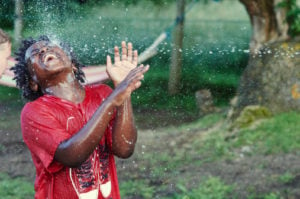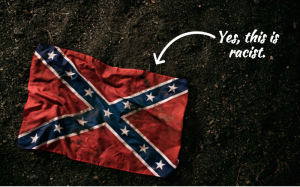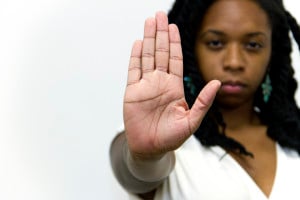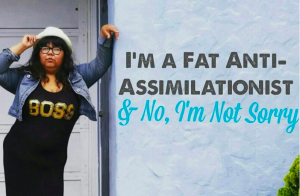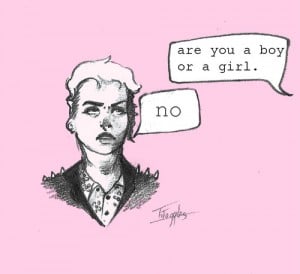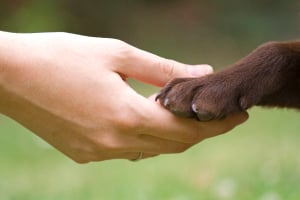
Source: Jennings Wire
Animal rights is a feminist issue. There, I said it.
In fact, the objectification and exploitation of animal lives and bodies ought to come under great scrutiny by feminists given that feminism is all about fighting against the way patriarchy dismisses certain being’s interests and subjectivity for the benefit of arbitrarily designated “superior” beings.
What’s even more terrifying is that the perceived vulnerability of animals is used as implicit justification for their abuse.
In other words, because animals cannot fight back, give to us or deny consent, or organize in opposition, we, as humans, feel we can do as we please to them, usually under the guise of “looking out” for their interests.
A number of barriers generally prevent many of us from understanding the situation with animals as oppressive. As a result, it might not be obvious why some feminists hold this to be a feminist issue.
But it is a feminist issue. Here are five reasons why.
1. Animal Bodies Are Objectified, Too
To be objectified means that one’s body and life exists for the pleasure or benefit of someone else.
As feminists, most of us are quite fluent with objectification rhetoric when it comes to women’s bodies in the media. For example, we know that women are regularly reduced to sexy props in men’s stories. We also know that women are routinely raped, beaten, harassed, and murdered because we tend to be viewed as pleasurable objects for men, as opposed to fully sentient subjects who experience pleasure ourselves.
As Jean Kilbourne states, “…turning a human being into a thing, an object, is almost always the first step toward justifying violence against that person.”
When you objectify bodies, you view these bodies as things that serve you for some specific purpose.
Similarly, non-human animal bodies are reduced to fleshly things (literally) that can be consumed, or used in painful or unethical scientific projects.
Animal bodies are regarded as “less-than.” They are not culturally seen as independent beings that experience pain, pleasure, and a range of emotions, and that exist in social networks. Because of this, animals endure horrible systems of violence that often are not even questioned.
Being objectified explains why so many industries use mice, monkeys, pigs, rabbits, and other non-human animals in horrific scientific tests because we are conditioned to have no consideration for them. This explains why non-human animals have endured harsh conditions in the entertainment industry like SeaWorld or even apes in films and commercials so that humans can laugh.
It becomes culturally inconvenient for us when we consider that non-human animals have emotions, can experience pain and depression, etc.
The objectification of animals has been so successful that they are entirely stripped of their subjectivity: they exist for us.
2. Animal Bodies Are Used to Normalize Rape Culture
Animals are sexed. The tortures inflicted upon animals, then, will be specific to their sex and it is no surprise that for female animals, their capacity to breed overwhelmingly dictates how their bodies will be controlled.
Factory farming, and even measures used in “happy” farms, institutionalizes forced sex and violent systems of oppression. The majority of animals who are killed each year are slaughtered through the factory farming system. Female animals endure a life of repeated rape and perpetual pregnancies and after they’re “spent”, they’re slaughtered.
“Rape racks”—an actual industry term for the device used to restrain animals during insemination—are used to ensure constant impregnation of animals like cows and pigs while chickens are bred to produce an overwhelming amount of eggs, which is an incredible stress on their bodies, causing painful reproductive ailments such as egg-binding and disease.
As feminists, to consume raped and tortured non-human animal bodies, while fighting against rape culture, seems a topic worthy of investigation.
There is also the other issue of institutional control of women’s bodies…
3. Domestic Violence Harms Animals
According to a New York Times article titled, “Animal Abuse as Clue to Additional Cruelties” Diana S. Urban, Democratic state representative of Connecticut, stated that, “Animal abuse is one of the four indicators that the F.B.I. profilers use to assess future violent behavior.”
There’s a clear correlation between hurting non-human animals early in your life, and then harming humans.
The American Humane Association states that in 88% of homes where child abuse was present, animal abuse was occurring too. For women who seek safe house shelters, over half of these women stated that their violent partners threatened to hurt their pets.
The correlation between violence against children and women, and violence against non-human animals demonstrates how patriarchy harms those of us who are minoritized and oftentimes powerless.
In fact, many domestic violence shelters and safe houses accept non-human animals. It’s proven that women tend to not leave abusive households if they can’t take their animal companions with them because they fear for their pets’ lives. Because of this strong correlation between violence against women, and violence against non-human animals, most states now have felony-level penalties for animal cruelty.
Violence is intersectional, so our movements to end violence must be as well. Non-human animals suffer under patriarchy as well.
Speaking of intersectionality…
4. Intersectionality Must Include All Oppressed Groups
There hardly exists a feminist comments thread that does not proclaim somewhere “even animals are treated better than women!” Even in other sites of demonstration, such as the recent Ferguson protests, one could find language like “a dog would have gotten more respect than Mike Brown!”
The language that surrounds non-human animals constantly makes use of a moral hierarchy that suggests certain bodies are more valuable than others, subsequently suggesting that the plight of certain groups are more important or significant than others.
A similar attitude is mirrored in discourse surrounding humans as well when we assume that one group’s fight for rights must demand our attention before some other group’s fight for rights, or that one group deserves better treatment than another despite both groups belonging to spaces of oppression.
A great example of this occurs in trans-exclusionary radical feminism [TERF] where cis-feminists exclude trans folk because they don’t believe trans folk experience oppression in the same ways they do.
Or think about some white feminists who don’t think racism matters to their feminist agenda because “gender” oppression is a more pressing matter, despite the fact that women of color experience racialized gender oppression.
Intersectionality is one theoretical development that helps us deal with such attitudes. Intersectionality helps one to see connections between systems of oppression.
The reality is this: people of color, women, people with disabilities, the LGBTQIA+ community, etc. have it pretty bad. And animals also have it pretty bad, especially those assumed to be useful only insofar as they are consumed, whether as flesh or dairy.
It is ridiculous to try to “rank” how bad each group has it, or to assume that all of our attention must be devoted to one group’s fight for rights, or to assume that if much of our attention is focused on one group at a certain time, that must mean the other groups are less important or “have it better.”
All of these spheres of oppression are byproducts of the same systemic evil—an evil that is heavily steeped in white supremacist patriarchy.
To declare that one of these groups is “treated better” than the other is to completely miss the ways in which these oppressions are intertwined and even depend on one another.
5. Our Society Spreads Lies About Animals, Too
Most of us as feminists already know that cultural scripts are used to naturalize problematic behaviors.
We know that “boys will be boys” is a way to deflect from critically assessing why men are allowed to get away with violent, destructive behaviors. It’s easier to say “well, boys are naturally like that” than to engage with systems of gender that produce cultural bodies that act in specific ways.
We also see these scripts that say “well, men are just more sexual than women” to explain why movies predominantly feature naked women and not naked men. We use this same script to explain away why rape happens. It’s a way to naturalize asymmetric sexual power relations.
Similarly, there are scripts in animal-eating spaces that naturalize horrible systems of oppression. Many people say: “I could never give up meat” or “I could never go vegan because I love cheese too much.”
While cheese and hamburgers might taste great, this script deflects from the systemic reality that non-human animals are tortured, slaughtered, and raped so that we can eat to satisfy our addictions to taste.
Apathy towards violence should never be fostered in any social justice movement.
Cultural scripts perpetuate myths and traditions. For example, there exists the convenient narrative that protein can only come from animal bodies despite the fact that there are equally good sources of protein elsewhere.
Also, consider the myth that “humanely” killing an animal is somehow better than factory farm conditions—an odd myth considering “humanely” and “killing” are in the same sentence, and abuse is rampant on “free range” farms as well.
Scripts allow us to feel comfortable with problematic behaviors. They allow us deflect responsibility for the choices we have the power to make.
***
As feminists, we need to politicize even the seemingly mundane things in our lives, like the food we consume. Dr. A. Breeze Harper, creator of the Sistah Vegan project, states:
“I simply cannot look at food as an “everyday mundane object.” I understand the meanings applied to food as something that represents an entire culture’s ideologies around everything. For example, food can tell me a society’s expectations about sexuality, gender roles, racial hierarchies of power and ability.”
Engaging with critical questions about our diets, as well as revisiting the bodies we talk about in our feminist theory is one of the first steps in decolonizing our minds and bodies from white supremacist patriarchy.
Here are some awesome resources to check out if you want to learn more:
- Sistah Vegan Project
- Vegan Feminist Network
- Food Empowerment Project
- The Academic Abolitionist Vegan
Special thanks to Syl Ko for helping me with this article.
[do_widget id=”text-101″]
Search our 3000+ articles!
Read our articles about:
Our online racial justice training
Used by hundreds of universities, non-profits, and businesses.
Click to learn more





